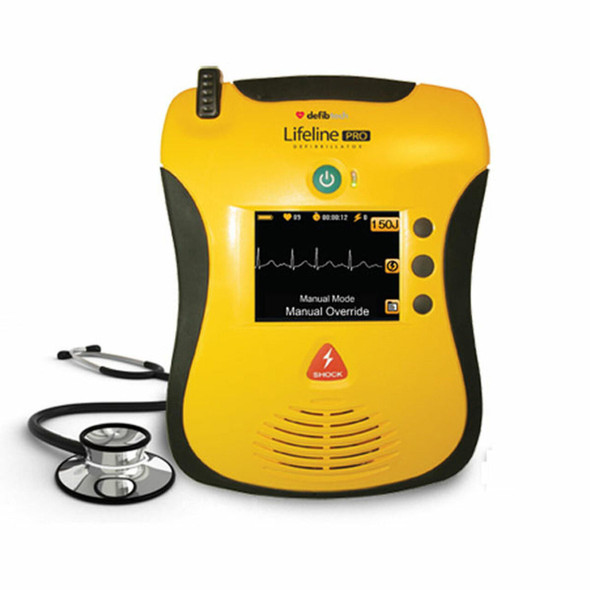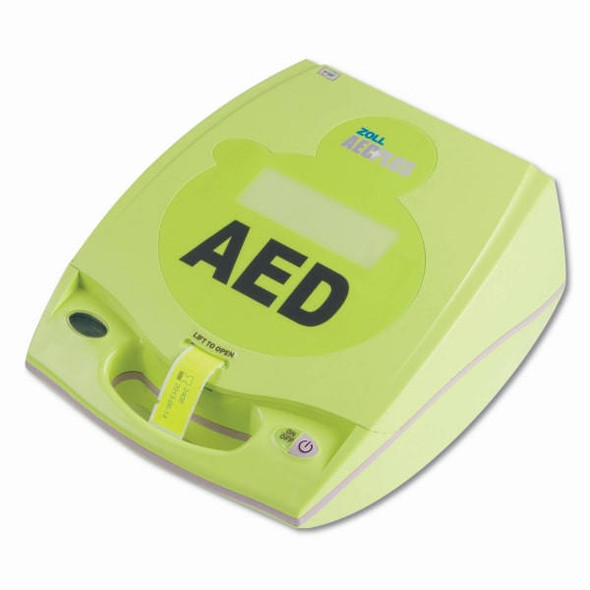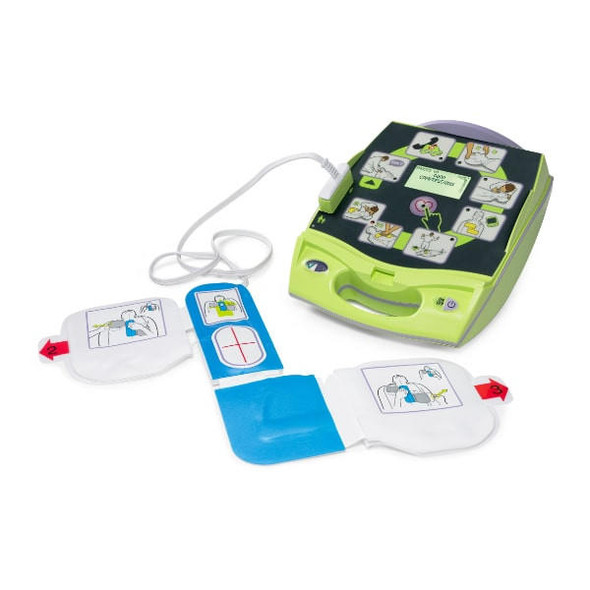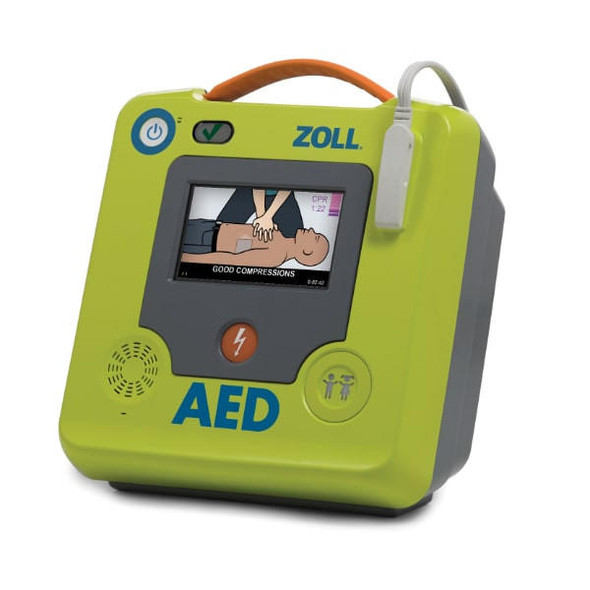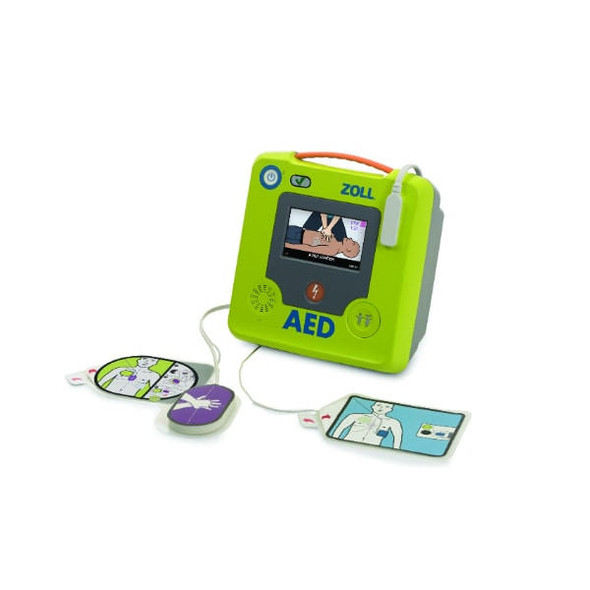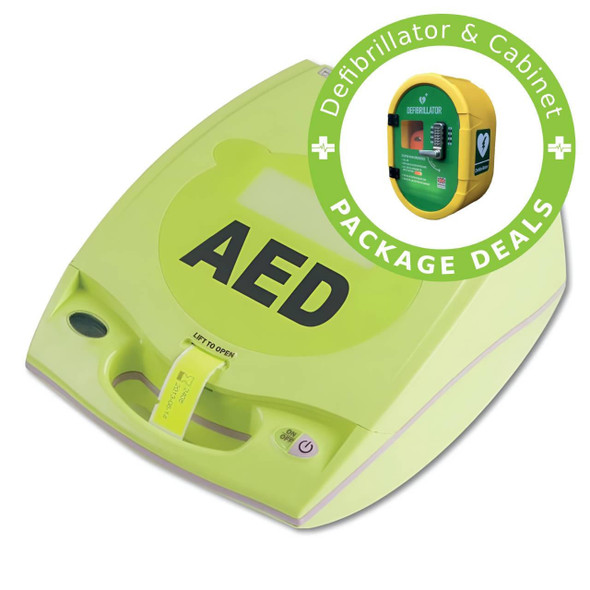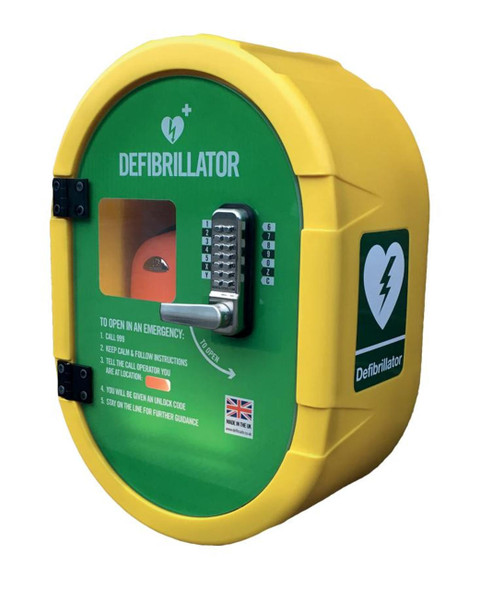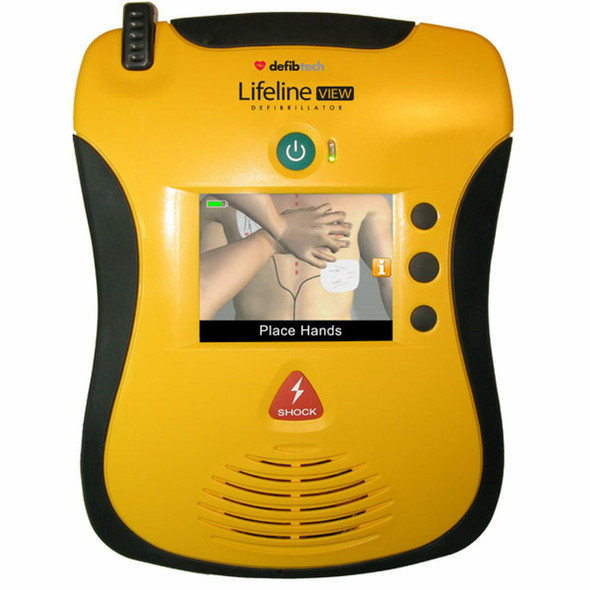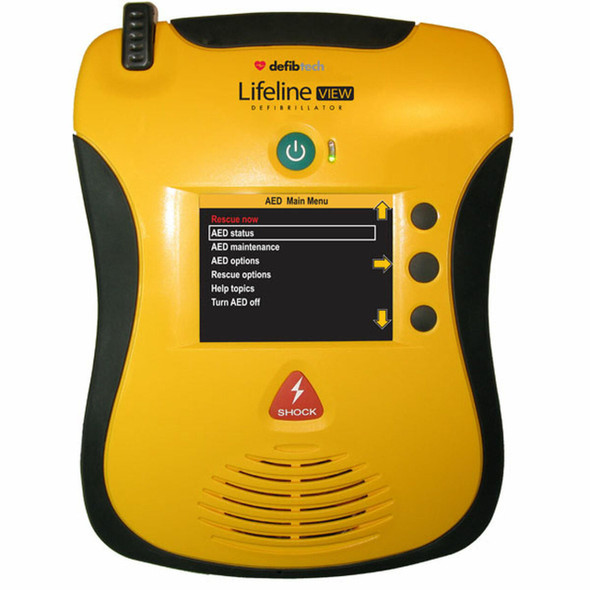Defibtech
Lifeline ECG AED - Semi-automatic Defibrillator with ECG Monitor
- SKU:
- 102363
- UPC:
- 0635131429293
- MPN:
- 102363
- Weight:
- 1.36 KGS
- Width:
- 18.54 (cm)
- Height:
- 24.13 (cm)
- Depth:
- 5.84 (cm)
Description
They say a picture is worth athousand words; now multiply that with the power of video. The Lifeline ECG has a large, full-color interactive display that gives step-by-step instructions for performing CPR, rescue breathing and external defibrillation.
Learn more about Videos
ECG Display
The Lifeline ECG allows the professional user to view the ECG while in AED mode.
Monitoring Mode
The professional user can use an optional 3-lead monitoring adaptor for enhanced ECG monitoring.
Showing How to Save Lives and Giving You the Confidence to Do it
Saving lives, while rewarding, can be stressful. Even if you are trained, in an emergency situation, will you remember what to do and how to do it? The Lifeline ECG, in AED mode, has videos that show you how to perform a specific part of a rescue, or can display the ECG.
A Personal Coach at Your Side
While you are in the middle of the rescue, you may not remember how many compressions to provide and the timing between each one. The Lifeline ECG has a built-in metronome that counts out the beat so you know what to do and when to do it.
Real-Time Protocol Selection
Enables you to switch rescue protocols without skipping a beat, giving you the comfort and confidence to deliver emergency care your way.
Is Your Device Ready for Rescue? The One Touch Status Screen Lets You Know
When sudden cardiac arrest strikes, there is no time to lose. You need to be sure that your AED is ready for rescue. Most other AEDs only signal when there’s a problem. The Lifeline ECG’s one touch status screen gives you everything you need to know that the unit is up to date and in working order — without turning it on.
Ruggedness and Durability
The ECG’s ruggedness is measured by a specific set of criteria. It is one tough little unit, coming out on top in some of the most demanding environmental tests.
Award-Winning Ergonomic Design
Compact, portable and lightweight —under three pounds — the Lifeline ECG represents the newest generation in a family of defibrillators that have won a number of industry awards for design and innovation.
Easy to Maintain
One of the major problems with most AEDs is maintenance. Not with the Lifeline ECG. The status screen gives you up to the minute information on maintenance if it’s required. In addition, built-in video help gives you easy, step-by-step guidance on maintenance that supplements the user manual. Proactive reporting monitors the status of the device and its components.
Easy to Upgrade
As protocols change over time, your unit can be upgraded in the field through a USB cable or a data card.
Easy to Record and Transfer Data
Data from the unit can be recorded or retrieved from the device using a card or USB cable.
Safe and Effective Life-Saving Technology
The Lifeline ECG uses biphasic technology, a clinically proven waveform and algorithm to deliver shocks and save lives. This is one of the most widely used impedance compensated waveforms which has extensive clinical experience and success in thousands of defibrillators around the world. Evaluation in hundreds of publications has demonstrated this technology to be the safest and most effective when it comes to saving lives.
Defibrillator
TYPE
Semi-Automatic external defibrillator
MODEL
DDU-2450
WAVEFORM
Impedance Compensated Biphasic
Truncated Exponential
ENERGY*
Adult: 150 Joules
Child / Infant: 50 Joules
(Nominal into 50 Ohm load)
CONTROLS
Lighted On/Off button
Lighted Shock button
CHARGE TIME
4 seconds or less
(from shock to advised)*
DISPLAY
High-resolution color LCD
VIDEO PROMPTS
Full motion video
On-screen text prompts
CPR COACHING
Video and voice coaching
On-demand video help
VOICE PROMPTS
Extensive voice prompts guide user through operation of the unit
RESCUE PROTOCOL
AHA/ERC 2010
Supports protocol updates by the user
(password protected)
* Typical, with new battery at 25° C
Self Tests
AUTOMATIC
Automatic daily, weekly and monthly circuitry tests
BATTERY INSERTION
System integrity test on battery insertion
PAD PRESENCE
Pads preconnected tested daily
USER-INITIATED
Unit and battery pack system test initiated by the user
STATUS INDICATION
Visual and audible indication of unit status
STATUS SCREEN
Unit self-test results
Pads and battery information
(status and expiration)
Patient Analysis System
PATIENT ANALYSIS
Automatically evaluates patient impedance for proper pad contact. Monitors signal quality and analyzes patient ECG for shockable/non-shockable rhythms.
SENSITIVITY/SPECIFICITY
Meets AAMI-DF-80 specifications and AHA recommendations
Defibrillation / Monitoring Pads
MODEL
Adult:
DDP-2001
Child / Infant:
DDP-2002 and DDP-2003
TYPE
Pre-connected, single-use, non-polarized, disposable, self-adhesive electrodes with cable and connector
SURFACE AREA*
Adult: 77 cm2
Child/Infant: 50 cm2
*nominal each pad
Environmental
TEMPERATURE
Operating: 0 to 50°C (32 to 122°F)
Standby: 0 to 50°C (32 to 122°F)
RELATIVE HUMIDITY
Operating / Standby: 5%-95%
(non-condensing)
ALTITUDE
-500 to 15,000 ft (-150 to 4500m) per MIL-STD-810F 500.4 Procedure ll
VIBRATION
Ground (MIL-STD-810F 514.5 Category 20)
Helicopter (RTCA/DO-160D, Section 8.8.2, Cat R. Zone 2, Curve G)
Jet Aircraft (RTCA/DO-160D Section 8. Cat H, Zone 2, Curves B & R)
SHOCK / DROP ABUSE TOLERANCE
MIL-STD-810F 516.5 Procedure IV 48 inches (1.2 meters), any edge, corner, or surface, in standby mode
CRUSH TEST
1,000 pounds (450 kg)
SEALING / WATER RESISTANCE
IEC60529 class IP55; Dust protected; Protected against water jets (battery pack installed)
ESD
IEC 60601-4-2: (Open air up to 15kV or direct contact up to 8kV)
EMC (Emission)
CISPR 11 Group 1 Level B
and FCC Part 15
EMC (Immunity)
IEC 61000-4-3 and
IEC 61000-4-8
Operating Modes
AED MODE: High resolution video display (animated instructions and CPR coaching).
ECG MONITOR MODE: Displays ECG data and event information (with 3-lead electrodes).
Battery Packs
MODEL
DBP-2003, DBP-2013 (aviation)
POWER
12V, 2800 mAh
TYPE
Lithium/Manganese Dioxide Disposable, recyclable, non-rechargeable
CAPACITY *
125 shocks or 8 hours continuous operation
STANDBY LIFE *
4 years
LOW BATTERY INDICATORS
Visible
Audible
* Typical, with new battery at 25° C
Event Documentation
INTERNAL EVENT RECORD
Critical ECG segments and rescue event parameters are recorded (greater than 60 minutes) and can be downloaded to a removable data card
PC-BASED EVENT REVIEW
ECG with event tag display, and audio playback when available
REMOVABLE STORAGE
(optional) Up to 30 hours of ECG and event data storage (no audio option) or up to 3 hours of audio (audio option). ECG and event storage on a removable data card. Actual length of storage is dependent on card capacity.
USB PORT
Event download and maintenance operations
Further information about Defibrillators
What is a defibrillator? It can be the difference in saving a life
How does a defibrillator work?
Top Tips for Buying a Defibrillator
Advice for purchasing defibrillators for schools
Defibrillator FAQs
All the defibrillators and AED's we supply are easy to use, self test and whilst users can be safe in the knowledge they cannot get shocked in error by touching the patient during defibrillation.


